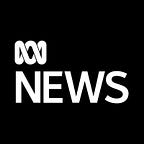Reconciliation is going to work if we give it a chance
The Wiradjuri elder — and man I am named after — has won a hard battle, but he now has a place in this country, writes Stan Grant.
My father is an old man now — he walks slowly, he is bowed a little and his once supple limbs have stiffened.
He has softened too; he has relaxed as he has aged. But once he wore his body like armour.
I see him now as the hard man he was, heavily muscled and tattooed. He lived in a world of other hard men. He was a boxer and a footballer. He has broken almost every major bone in his body, he has been poisoned and stabbed.
He lost the tips of two fingers from working in sawmills. Day after day he would heave logs twice his size, dicing with danger each time he threaded them through the jagged teeth of the whirring circular saw.
I would see him each day coming home covered in blood and sap. His bones were weary and he would collapse into a hot bath, sit to an often meagre meal and rise before dawn the next day to do it all again.
This is how he provided for his family. He had his hands and his muscles to hold us together against a harsh world.
This is where history had deposited him, on the margins of an Australia that did not include him.
My dad is a Wiradjuri man. He comes from a long line of warriors. When the British crossed the Blue Mountains and came to our land, the Wiradjuri met them with a fierce resistance.
In the 1820s, the Sydney Gazette described the conflict between the Wiradjuri and the whites as a “war of extermination”. The government imposed martial law and white raiding parties were formed to go after the blacks.
By the turn of the 20th century my father’s people were forced onto missions and reserves. Their lives were controlled by the state. They were told where they could live and whom they could marry.
When I was born, my father and mother, a Kamilaroi woman, were clinging to life on the fringes of towns.
Our lives were spent on the road, moving from town to town as my parents searched for work.
We were the people who did not count. We were not included in the census. The federal government could not law for Indigenous people.
I asked dad to tell me about his life — our family’s life — for our referendum special, Counted.
“Racism was in your face. I was called nigger, boong, coon, abbo, blackie, you name it, I copped it all the time,” he said.
“You couldn’t own a block of land, you couldn’t own a house, you had to rent one. You couldn’t be out late at night, you had to [be] gone by sundown from the street.
“There were many, many, things we couldn’t do.”
Citizens in country that was ours
But things were changing. When I was born in 1963, the Aboriginal voice was being heard.
There had been a long struggle for rights and recognition in our own country.
In 1967, more than 90 per cent of Australian voters would tick “yes” in a referendum to include us in the life of this nation.
“It took a couple of years for it to sink in to people that we were now human beings. We just had to keep poking along and do the right thing,” dad told me.
“In 69–70 there I noticed there were some changes being made. The racism that was in our face, wasn’t there, it was behind us a bit, it was more of an undercurrent.
“It gave us the right to be citizens, in our country that was ours in the first place.”
Despite some changes, dad was still worried about his family.
“That was my fear that all my kids, my four children would be asked to leave school, to get out of school because they were black,” he said.
‘We were never Australians’
Much has changed since. I did receive the education denied to my parents and pursued a career that has taken me around the world.
My father has devoted his life to rescuing his language. He wrote the first Wiradjuri dictionary and has taught a new generation of Wiradjuri speakers.
He has been honoured with an Order of Australia medal. Two years ago he was awarded a doctorate from Charles Sturt University.
This Wiradjuri elder, Stan Grant — the man I am named after — has won a hard battle. He has a place in this country.
The scars have healed but he never forgets.
As we remember the 50th anniversary of the 1967 referendum he reminded me again.
“We were never Australians — we were outcasts,” he said.
“But reconciliation is going to work if we give it a chance. It won’t happen in my time but it will happen and this country will turn around, I think this country will come good.”
Originally published at www.abc.net.au on May 25, 2017.
